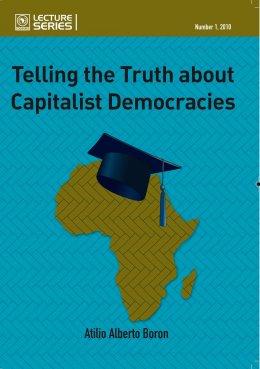Telling the Truth about Capitalist Democraties
Keywords:
Capitalist, Democraties, nation-statesSynopsis
After decades of dictatorship involving enormous spilling of blood, the social struggles of the popular masses brought Latin America back – or in some cases for the first time – to the first and most elementary level of democratic development. But even this very modest achievement has been constantly besieged by opposing forces that are not ready to relinquish their privileged access to power and wealth. Yet, the traditional model of ‘liberal democracy’ faces an inevitable demise. Its shortcomings have acquired colossal proportions, and its discontents are legion, in the advanced capitalist nations as well as in the periphery. Contrary to what is asserted by many observers, the crisis of the democratisation project in Latin America goes well beyond the imperfections of the ‘political system’ and has its roots in the insoluble contradiction, magnified in the periphery, between a mode of production that (by condemning the wagelabour to find somebody ready to buy its labour power in order to ensure its mere subsistence) is essentially despotic and undemocratic; and a model of organisation and functioning of the political whose basic assumption is the intrinsic equality of all citizens. The struggle for democracy in Latin America, that is to say, the conquest of equality, justice, liberty and citizen participation, is inseparable from a resolute struggle against global capital’s despotism. More democracy necessarily implies less capitalism.
Downloads






